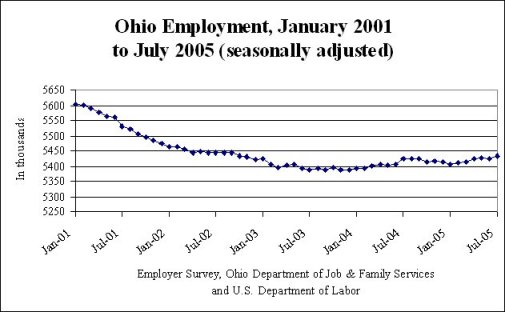SCHOOLS DAZED
On Wednesday, in the immediate aftermath of the Cleveland school levy's 65%-35% defeat,
I wrote:
"[W]hen you get a resounding vote of no confidence like yesterday's, somebody has to resign. At least that's what happens in democracies. Who's it gonna be?"The answer: On Friday,
Barbara Byrd-Bennett resigned as schools CEO.
I was going to write that no, this was not some great insight on my part... everyone knew BBB was planning to leave, and this announcement would have happened even if the levy had passed. I still think this is right, but
Chris Sheridan's column Sunday morning has a different take:
"Byrd-Bennett saw 'exit' sign: She's the issue."Sheridan is a strong BBB sympathizer with personal access, so maybe she's got it right. Or maybe Byrd-Bennett has decided to make a big dramatic deal of her long-planned exit in order to give voters the
impression of upheaval. In any case, she'll still be in the big chair until well after November, the same Board of Education will commence the search for her successor, and she'll keep her influence during and after the transition. (Note that BBB is making a
big point about wanting to stay in Cleveland, assuming, of course, the right new job. I'm sure it's looking for her right now.)
All in all, have we seen
any sign so far that
anyone in charge at the CMSD has learned
anything from Tuesday's humiliation? Nope. What would constitute such a sign? Well, how about the resignation of someone who wasn't already planning to do so? Like, let's say, the Board of Education.
Here's board president Margaret Hopkins at the press conference Friday:
"We believe we are on the right course. We know the direction we want to head in."She really said that. I saw it on TV.
See, this is why it's a good idea to have elected officials in charge of public agencies. Politicians have their downsides, no doubt about it, but they know that when you lose an election by a 2 to 1 margin,
it's time to stop believing you're on the right course. Your people are trying to tell you something. Stop babbling and start listening.
I've known Miggie Hopkins for a long time -- since she was a staffer at Cleveland Women Working in the '80s, long before she became an education reform pro and got her Weatherhead doctorate in "organizational behavior". She's a good, smart, dedicated person. But she doesn't seem to recognize the textbook crisis for a public organization in a democracy -- the disintegration of leaders' legitimacy when their constituents neither know them nor trust them.
Healthy democracies avoid this kind of crisis by having elections -- not just occasional referenda on policies, but real, competitive elections for leadership. Cleveland voters haven't elected the leadership of our school district for over a decade. It's really starting to get obvious.
Back in 2002, when the permanent continuation of mayoral control was on the ballot, I remember Reverend Marvin McMickle -- pastor of Antioch Baptist Church and veteran Shaker Heights school board member -- in the LWV debate, warning that depriving the schools of their own political leadership wouldn't seem so smart when times got tough and levies had to be passed. But in 2002 things still looked promising, Campbell and BBB were still popular, an operating levy was not on the agenda, and the media knew what was good for us. So McMickle was widely ignored.
Reverend McMickle can say "I told you so" any time now. In three short years, district finances have collapsed. 1400 teachers are gone, and more are going. Campbell and BBB no longer have coattails. Two crisis levy attempts have gone down in flames. And the system's "leadership" -- the anonymous, unelected school board we voted to keep -- is reduced to oblivious talk about being on "the right course", while
the mayoral candidates frantically maneuver to avoid and assign blame.
Somebody needs to stop whining about East Side turnout and West Side resentment, and start talking honestly about this hole we've dug our school system into. Not the financial hole, the
political hole -- that big empty space where we should find accountable leaders and clued-in citizens talking to each other, not this toxic soup of frustration, distrust, lame excuses and shredded happybabble.
Strangely enough, this could be the school board's moment. Really, I'm serious. The members I know, like Hopkins, are smart people who certainly aren't in this for the money. With the mayor's race up for grabs and the CEO a lame duck, they
could decide to be the leaders the district needs, rather than the meek rubber stampers everyone expects. To start with, they could put aside the excuse-making and "right course" talk, and head out personally to the wards where the levy got skunked, to talk with the citizens about why.
Or they could resign, preferably at high noon on the steps of City Hall. That would certainly up the ante for the schools in the mayor's race.
FINGERS ARE A-POINTING: Democracy Guy responds to
the Mayor and her opponents trading blame for the levy failure at an East Side event thusly:
Campbell Plays Race Card To Scapegoat Levy Defeat?I think this is kind of a cheap shot, for reasons I explain in
a disjointed comment. For more about why the Council President deserves a fair share of the blame for the levy's horrible timing, if not for the campaign's infamous "stealth strategy", take a look at
this post from way back in April.



